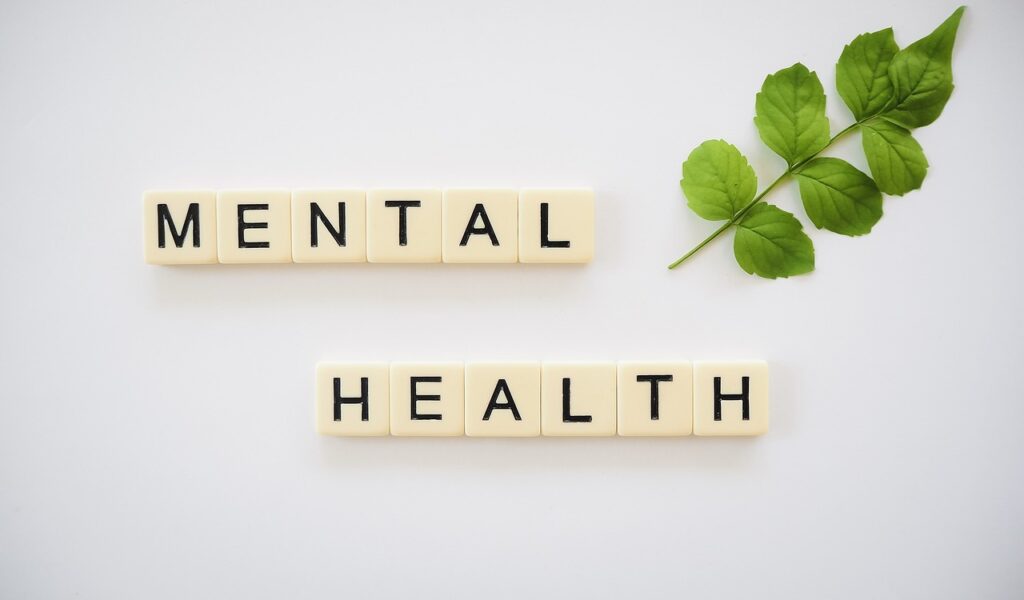In our busy, fast-paced world, mental health often takes a backseat. But the truth is, mental wellness is just as important as physical health—it affects our emotions, relationships, and our ability to fully experience life. Everyone, regardless of background or circumstance, is impacted by mental health. And just like we care for our bodies, we must nurture our minds with the same love and attention. It all begins with self-love, the cornerstone of mental wellness.
Mental Health Matters for Everyone
Mental health is something that impacts us all. Whether it’s managing stress, handling emotions, or navigating life’s ups and downs, everyone faces challenges. Understanding mental health doesn’t need to be complicated; at its core, it’s about feeling balanced, grounded, and supported. And just like the seasons change, so does our mental state—it’s natural. But when we choose to care for ourselves, those changes can be more harmonious.
At the heart of cultivating mental health is self-love. It’s about taking a holistic approach to our emotional, mental, and physical needs. When we love and care for ourselves deeply, it creates the foundation for positive mental health.
Self-Love: The Cornerstone of Mental Wellness
Understanding Self-Love: Self-love is more than just a buzzword—it’s about deeply nurturing yourself, recognizing your worth, and giving yourself the care you deserve. It’s not just about pampering yourself with a bubble bath (though that’s lovely too!); it’s about being compassionate, patient, and forgiving with yourself, especially during difficult moments.
Why Self-Love Is Essential for Mental Health: When we practice self-love, we cultivate resilience, improve our relationships with others, and create a stronger sense of self-worth. This directly impacts mental wellness. Self-compassion helps reduce stress, while patience with ourselves allows room for growth and healing.
Practical Self-Love Habits: You don’t have to overthink self-love—it can be as simple as speaking kindly to yourself or taking a moment each day to recognize what you appreciate about yourself. Start small by incorporating positive affirmations, setting healthy boundaries, and saying no to toxic situations. Little habits, done consistently, make a world of difference in cultivating mental health.
Taking Authority Over Your Mental Health
Personal Empowerment: You are the authority when it comes to your mental health. It’s empowering to acknowledge that you have more control than you might think. By taking small steps toward caring for your emotional well-being, you’re already making strides toward a healthier, more balanced life.
Recognizing Your Mental Health Needs: The first step is awareness—recognizing when you need extra care. Burnout, mood swings, or difficulty concentrating are just a few signs that it’s time to take a step back and recalibrate. Trust your intuition, and don’t wait for things to get overwhelming before seeking support.
Creating Your Mental Health Toolkit: Build a personal toolkit that includes your go-to activities, practices, and habits that restore balance and peace. Journaling, physical movement, mindfulness, or creative hobbies can all become go-to resources to help you stay grounded. Over time, you’ll learn what works best for you.
Mental Wellness Habits: Small Steps, Big Impact
Daily Mindfulness: Mindfulness isn’t just a trendy buzzword—it’s a powerful practice for mental health. Being present in the moment, even if just for a few minutes, can reduce stress and anxiety. Practices like meditation or simple breathwork help clear the mind, allowing you to reconnect with your body and emotions.
Exercise and Movement: Movement is not only great for physical health but also plays a vital role in maintaining mental wellness. Whether it’s a morning walk, stretching, or dancing around your living room, any form of physical activity helps reduce stress and elevate mood. Start with small, gentle movements, and build from there.
Sleep and Nutrition: Proper rest and nourishing food are the pillars of mental well-being. When we are well-rested, we can think more clearly and manage stress better. A balanced diet supports brain function and emotional resilience, so take time to fuel your body with wholesome, nourishing foods.
Self-Education Tip: There are plenty of accessible resources to deepen your understanding of the connection between physical health and mental wellness. Podcasts, books, or even apps focused on mental health can be a great way to learn more.
Building Emotional Resilience: Facing Challenges with Strength
Acknowledging Emotions: Life isn’t always smooth sailing, and it’s okay to not be okay. Acknowledging your emotions without judgment is a powerful step toward emotional resilience. Rather than pushing feelings aside, allow yourself to experience them, process them, and let them go.
Managing Stress: Stress is inevitable, but it doesn’t have to control you. Simple techniques like deep breathing, stress-relief exercises, or talking things out with a trusted friend can help manage overwhelming feelings. Practicing gratitude is another wonderful tool to shift focus from what’s stressful to what’s positive in your life.
Healthy Coping Mechanisms: Find outlets that help you cope with challenges. Whether it’s journaling, engaging in creative hobbies, or taking a nature walk, choose activities that give you a sense of relief. These practices help process emotions and restore your inner peace.
Self-Education Tip: There are so many resources available to help you build resilience. Look into mental health podcasts or books that focus on coping strategies and emotional strength.
Setting Boundaries: Protecting Your Mental Health
What Are Boundaries?: Boundaries are the lines we draw to protect our time, energy, and well-being. They help us maintain our mental health by ensuring we don’t overextend ourselves or allow others to take more than we’re able to give.
How to Set Healthy Boundaries: Setting boundaries is an essential skill for mental wellness. Whether it’s saying no to extra work, limiting time with draining people, or protecting your time for self-care, establishing clear limits is an act of self-love.
Enforcing Boundaries: Enforcing your boundaries doesn’t make you selfish—it makes you self-respecting. It’s important to stand firm on your limits, even when it feels uncomfortable at first. Remember, your mental health is worth the effort.
Seeking Help and Support: You Don’t Have to Do It Alone
Breaking the Stigma: There’s no shame in seeking help for your mental health. Whether through therapy, support groups, or confiding in a close friend, reaching out for help is a courageous step toward healing and growth.
When to Reach Out: If feelings of sadness persist, if motivation wanes, or if you’re withdrawing from loved ones, these may be signs that it’s time to seek support. Don’t wait for things to get unbearable—reach out as soon as you recognize the need.
Creating a Support Network: Surrounding yourself with understanding friends, family, or a community can provide a sense of connection and support when things feel tough. It’s okay to lean on others and allow them to lean on you, too.
Developing a Mental Wellness Routine
Personalized Routine: A mental wellness routine doesn’t have to be rigid—it should fit your life and your needs. Start small with a daily gratitude practice, a weekly self-check-in, or a few minutes of morning mindfulness. Consistency is key.
Tracking Your Mental Health: Consider journaling or using a mood tracker to monitor your progress over time. Reflecting on how you’re feeling each day helps you stay in tune with your emotional state and can highlight areas that need extra care.
Self-Education Tip: There are a variety of apps and tools available to track your mental health journey. From mood trackers to guided meditations, these resources can be an added layer of support as you nurture your wellness.
Mental Wellness is a Journey, Not a Destination
Mental wellness is an ongoing journey. It’s not about achieving perfection—it’s about taking small, consistent steps to care for yourself each day. By incorporating practices like self-love, mindful habits, and healthy boundaries, you’ll start to notice the positive effects on your mental health.
Remember, it’s okay to seek help when needed. You’re never alone on this path, and there’s no one right way to care for your mental health. So today, I encourage you to take one small step toward mental wellness—whether it’s setting a boundary, practicing gratitude, or simply acknowledging your emotions.
You deserve the peace and resilience that come with nurturing your mental health. Let’s grow together, one gentle step at a time. 🌿✨
Until next time, loves! 💕



Leave a Reply